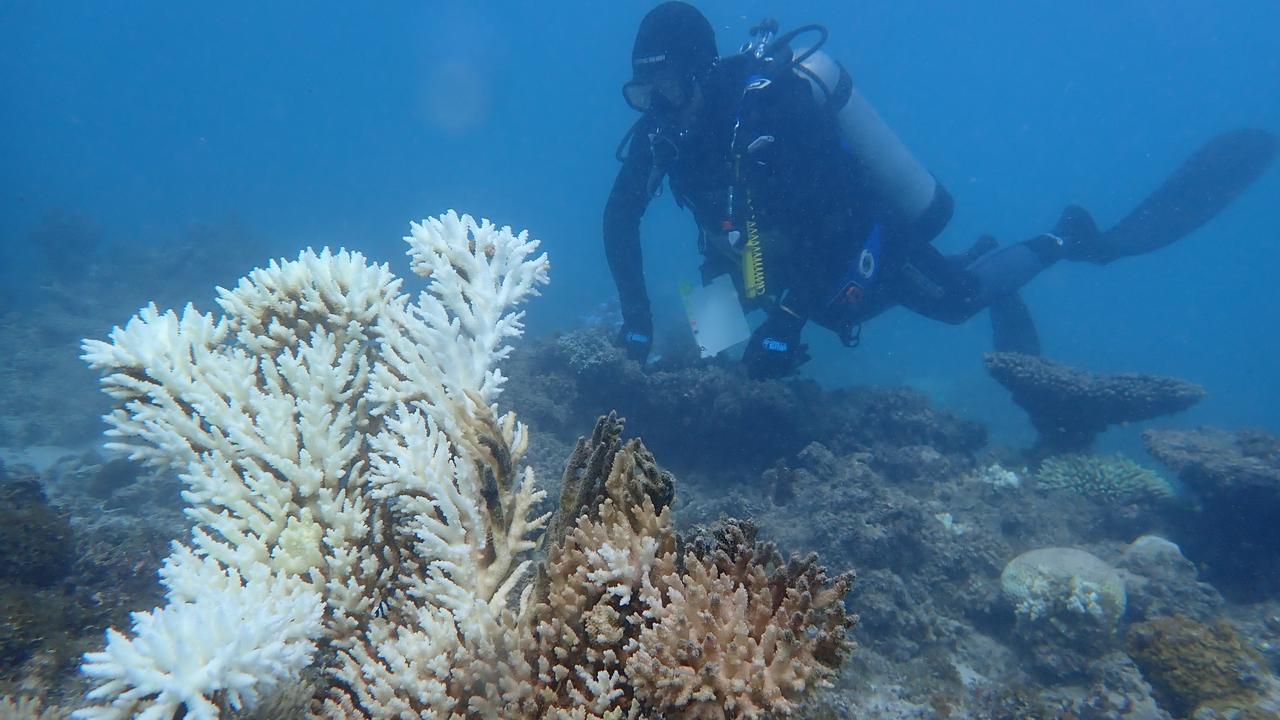
The longest, largest and most intense marine heatwave on record has triggered the worst coral bleaching off Australia's western coastline, scientists say.
Researchers are still assessing the full extent of the damage after an unprecedented event that has prompted further calls for urgent action on climate change.
The Australian Institute of Marine Science has confirmed coral mortality rates of up to 90 per cent along 1500km of Western Australia's coastline.
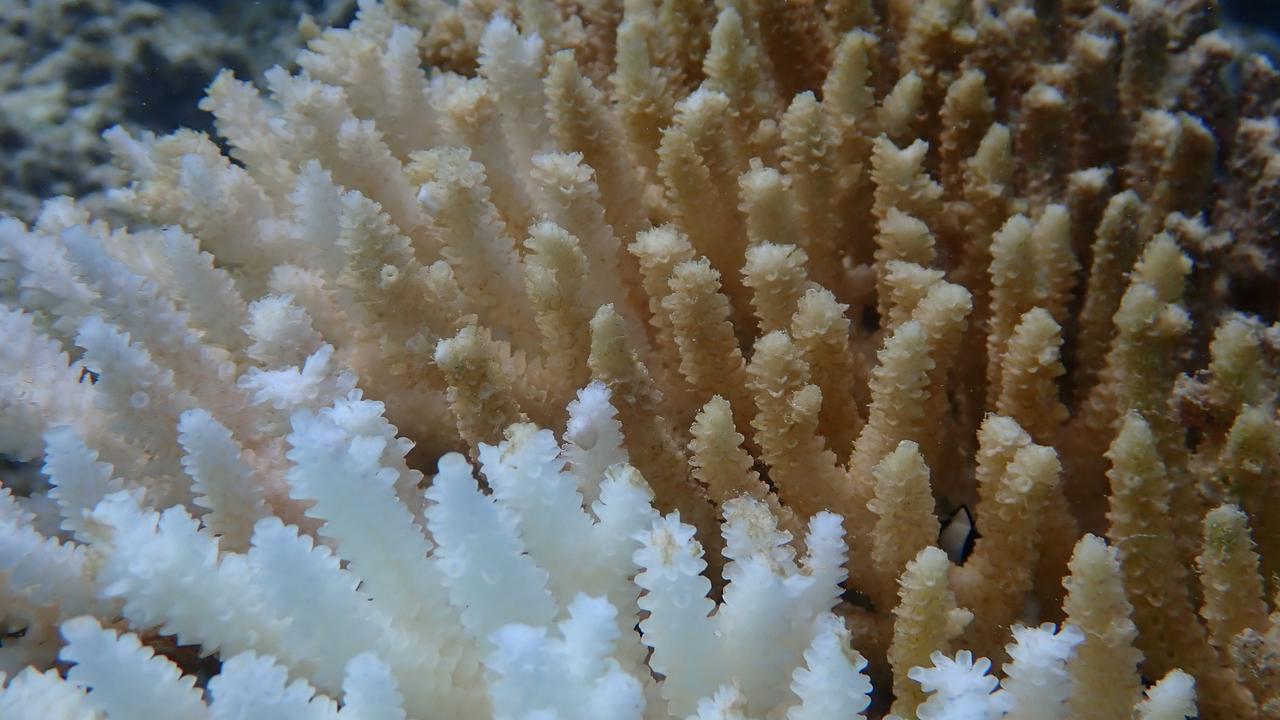
"The length and intensity of the heat stress and its footprint across multiple regions is something we've never seen before on most of the reefs in WA," the institute's senior research scientist James Gilmour said.
"Areas which had given us hope because they'd rarely or not bleached before, like the Rowley Shoals, north Kimberley and Ningaloo, have been hit hard this time."
Sea surface temperatures around Australia in the past summer were the warmest since 1900, with the institute labelling it the "longest, largest and most intense" season on record for WA.
Conditions varied across the tropical reefs - from "extreme", 90 per cent bleached or dead, to "medium", somewhere between 11 and 30 per cent.
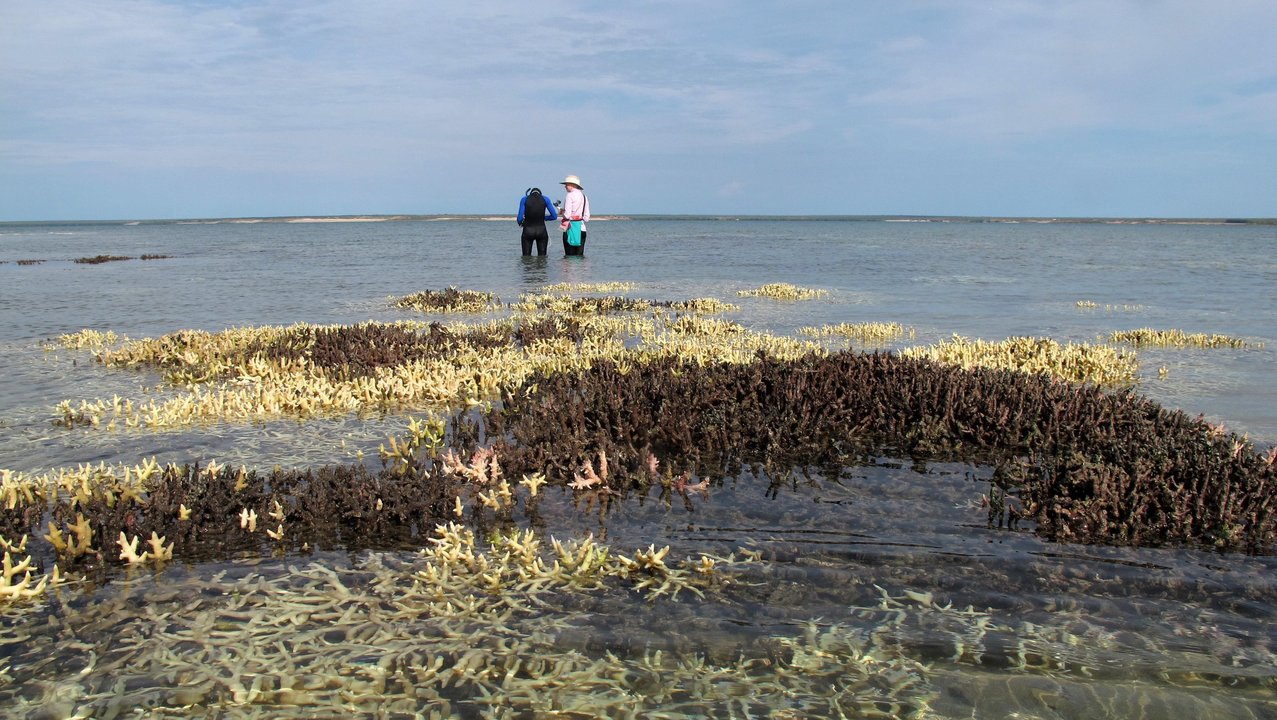
Mermaid and Clerke reefs in the Rowley Shoals, 300km west of Broome, recorded "very high" mortality levels between 61 and 90 per cent.
The World Heritage-listed Ningaloo Reef, known for its whale sharks, experienced "high" bleaching and mortality between 31 and 60 per cent.
Dr Gilmour said climate change was driving the increased frequency and severity of mass coral bleaching events and giving them little time to bounce back in between.
"They need 10 to 15 years to recover fully," he said.
"The key to helping coral reefs survive under climate change is to reduce greenhouse gas emissions."
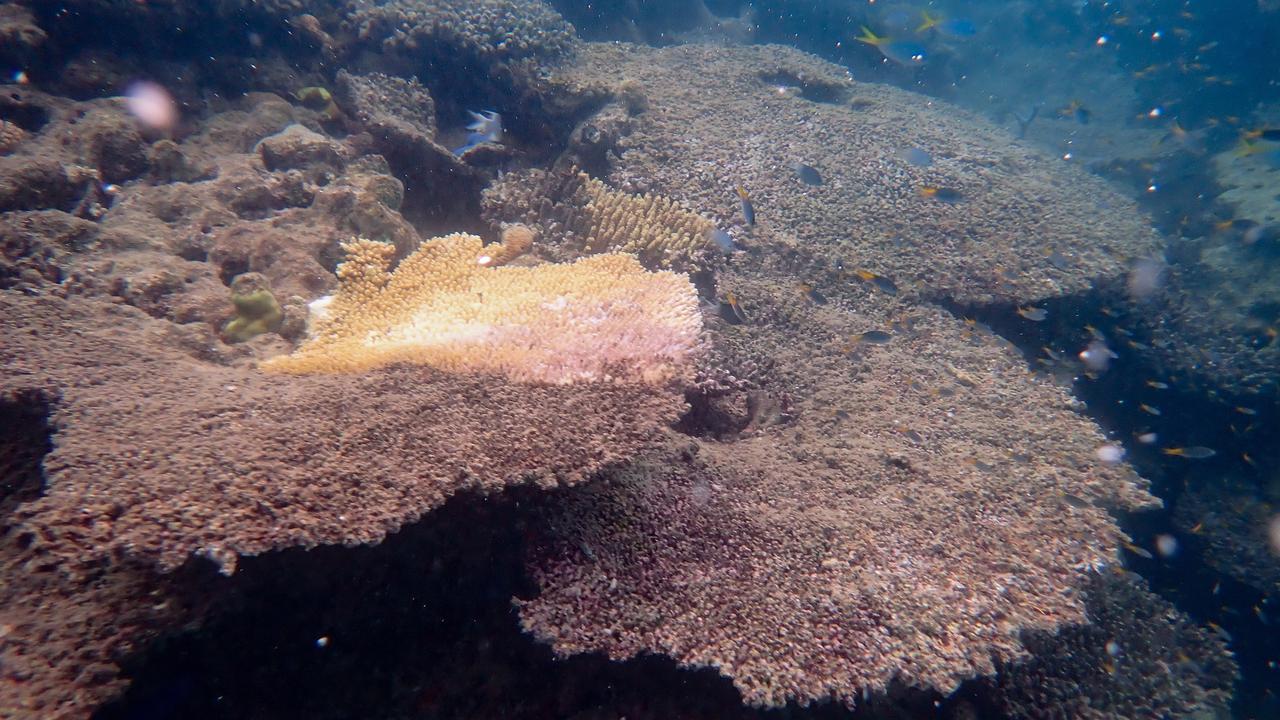
The Great Barrier Reef has also been under pressure, experiencing the largest-ever annual decline in coral cover in two of its three regions in 2024.
Greens leader Larissa Waters said the WA event was a further warning about the impacts of climate change and accused the federal government of not taking the crisis seriously.
"Reefs that have never suffered bleaching before have now bleached - this is the face of the climate crisis," she said.
"We're not going to get too many more warnings, because we've seen mass coral bleaching and deaths, and you can't come back from that."
The Australian Marine Conservation Society called for urgent climate action and stronger protection for reefs.
"The vast scale of the impacts along WA's coastline and offshore reefs is hard to comprehend - this is unprecedented harm and needs an unprecedented leadership response from WA and federal governments," chief executive Paul Gamblin said.
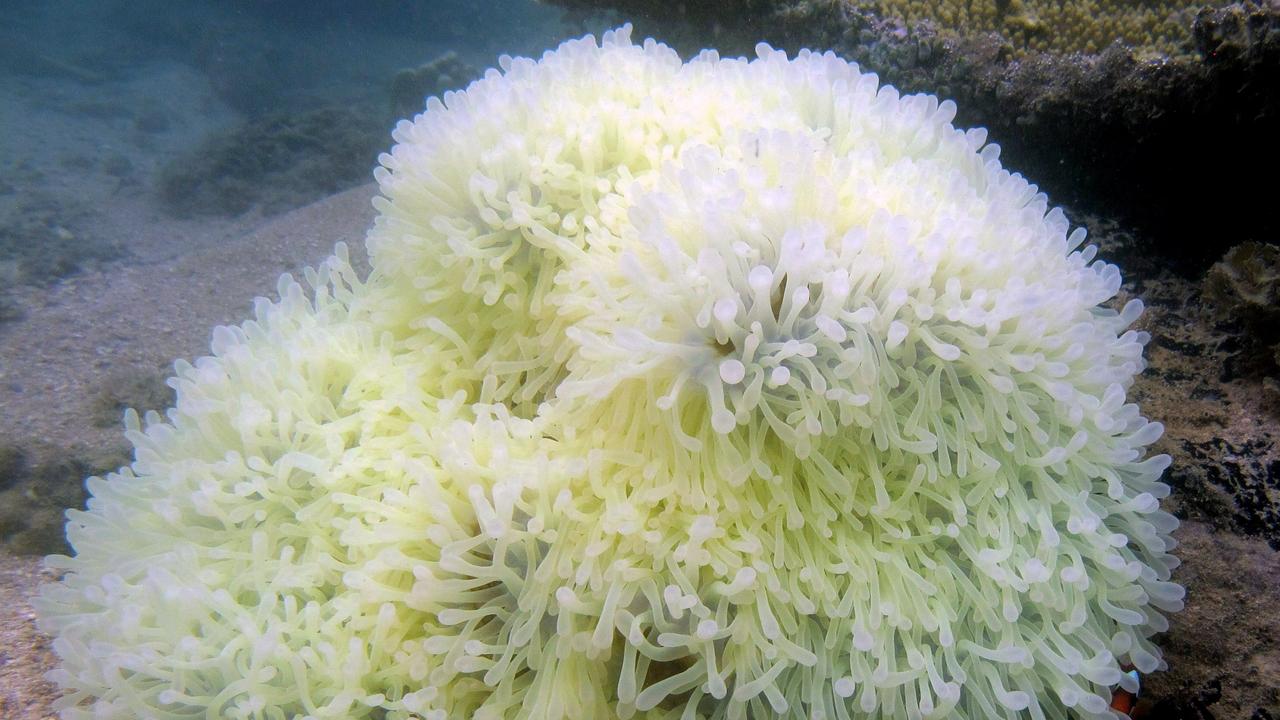
The Conservation Council of WA said the bleaching was devastating but not surprising.
"Scientists have been telling us for many years now that at 1.5 degrees of warming we're set to lose 80-90 per cent of our coral reefs and at two degrees we lose it all," director Matt Roberts said.
Molecular ecologist Kate Quigley said the bleaching and coral deaths should be a "wake-up call" for the nation.
"We need strong emissions reductions to curb future marine heatwaves that we know are likely to be in our future," the Minderoo Foundation principal research scientist said.
Dr Quigley also called for more research and monitoring of the "critical ecosystems".
The coral health update comes ahead of the expected release of the federal government's 2035 climate goals, due in September under Paris Agreement rules.
WA remains the only state without a 2030 emissions reduction target.







